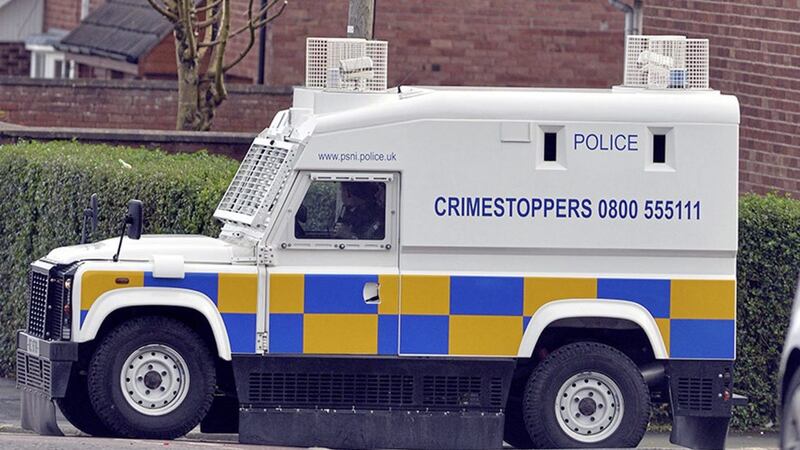PSNI staff absence is at "an all-time high" as attempts to manage costs by slashing officer numbers have seen it risk long-term sustainability, auditors have warned.
The report from the Northern Ireland Audit Office finds the service under considerable pressure following self-inflicted cuts to its workforce at a time when "demand has increased and the nature of crime has changed significantly".
The action was taken by PSNI bosses after its budget fell by more than "£200 million in real terms", but their methodology is called into question in the report.
Auditor General Kieran Donnelly warns that "if the PSNI is to continue to manage in these circumstances, it has to adopt a more strategic approach to reducing costs".
His report says its practice of top-slicing budgets in response to short-term financial pressures is unsustainable, with any more reductions "likely have a noticeable impact upon the PSNI’s ability to deliver a quality service".
The PSNI's Priority Based Resourcing (PBR) system to manage its budget was supposed to "identify quick wins to help ease financial pressures and result in a new approach to allocating resources in the longer term".
However, "the focus turned very quickly to reducing headcount", with officer numbers falling by seven per cent and staff numbers by five per cent, a change which "has undoubtedly put a strain on the service", with neighbourhood policing particularly badly affected.
Absences have "increased significantly" over the last nine years - going from an average of eight days in 2010-11 to 14 days in 2018-19, and the number of officers on recuperative and adjusted duties more than doubling in the same period to 13 per cent in 2018-19.
"High levels of sickness absence, increasing levels of demand and the emerging concerns over officer wellbeing are all issues which present significant risks to the future resilience of policing," auditors warn.
"The focus on short term cost reductions means that it has been storing up problems for the future," Mr Donnelly said.
"Staff absence is at an all-time high and there is a backlog of building maintenance which will need £27 million to deal with."
The reduction in police numbers present "a number of risks to long-term sustainability", as they "are not related to an analysis of the actual number of officers the PSNI needed to deliver an effective service - they are driven solely by the need to meet immediate financial pressures".
It warns that over time, there is a risk of developing a significant gap between actual staff numbers and the numbers that the PSNI’s analysis suggests it needs.
The report found the PSNI did not have "a clear vision of the specific objectives" of the programme.
In the end, of the 14 projects started in late 2017, three were completed with substantial changes in scope, a number were changed significantly and others were simply abandoned.
Deputy Chief Constable Mark Hamilton said: "We accept the report’s findings and its recommendations. We will take the learning and apply it to our future efficiency programmes."
However, he said the PSNI budget cuts "were more severe than those inflicted on most other police services in the United Kingdom" and were an "unprecedented challenge".
He said the service tried "to deliver the cuts and at the same time protect office numbers as much as possible" and PBR had been assessed by Her Majesty's Inspectorate of Constabulary and Fire and Rescue Services as national best practice, with that body assessing PSNI efficiency as `good'.
The PSNI is preparing "to increase headcount, improve the built estate and better harness new digital capability (and) in the interim, the Chief Constable Simon Byrne has radically increased the number of neighbourhood officers", for which Mr Hamilton said there is "an insatiable desire".
"The PSNI is determined to continually improve the quality of its service to the citizens of Northern Ireland and will use this report as a blueprint to ensure that the process and audit of these improvements are appropriately managed," he said.








